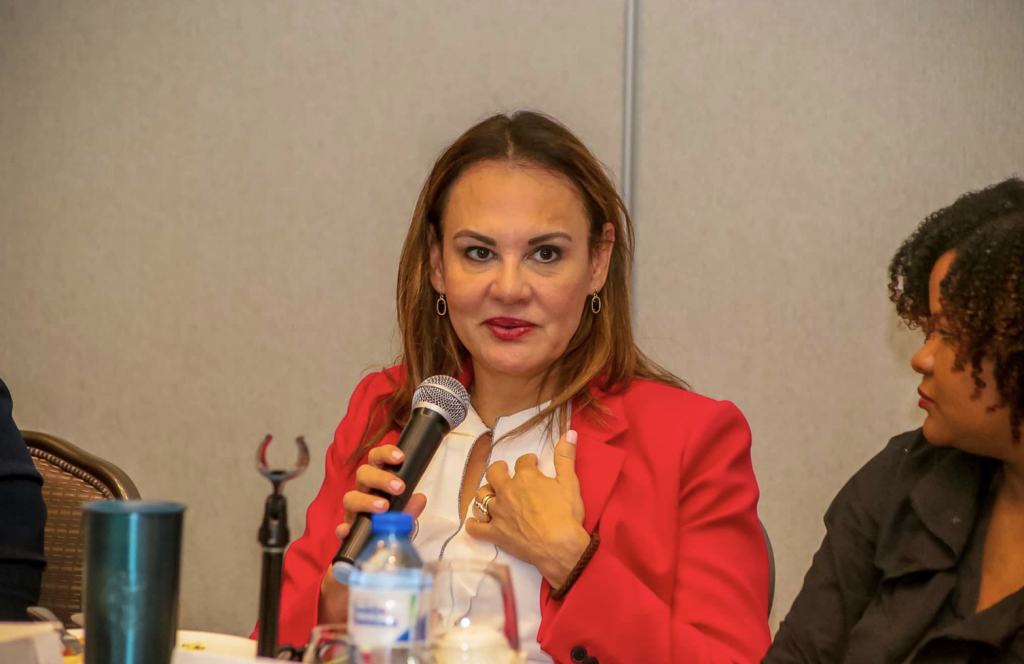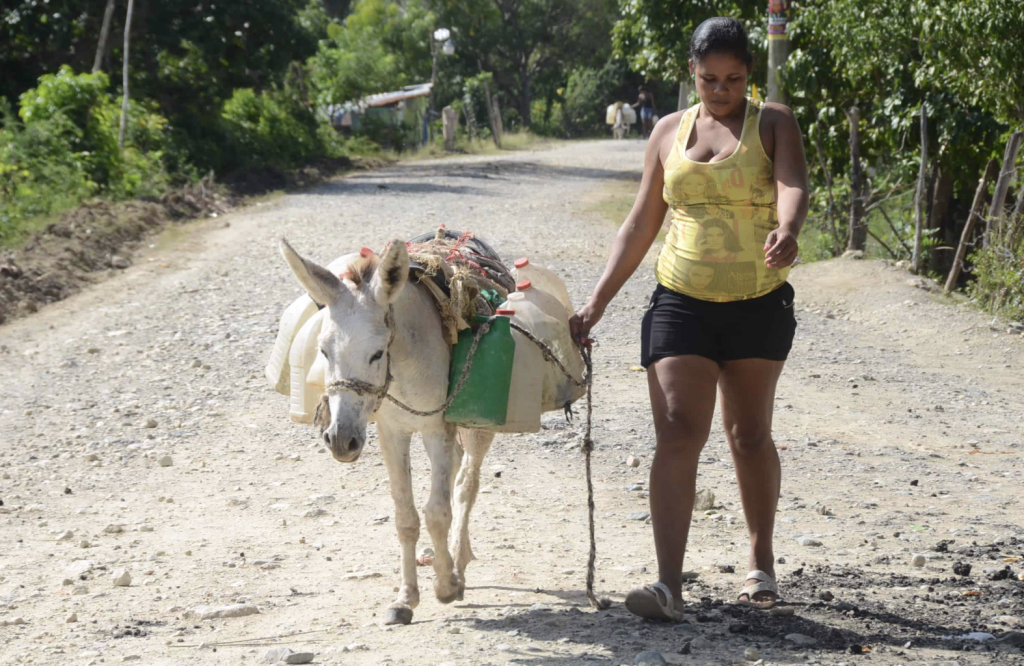
During a meeting with women journalists, the representative of the World Bank expressed her concern with generalized practices in the Dominican Republic that discriminate against women. The World Bank presentation highlighted that it acts on the premise that no country, community or economy can reach its potential or confront the challenges of the 21st Century without full participation on equal grounds of women, men, girls and boys.
Data compiled by the World Bank indicates that the Dominican Republic performs poorly in terms of gender equality. The high prevalence of child marriages and teenage pregnancies worsen the situation.
Alexandria Valerio called for Dominican journalists to report on these issues and furthermore encouraged denouncing cases of discrimination in financing for gender during the conversation with journalists at the InterContinental Real Hotel. She called for the journalists to use “a gender lens” to advocate for equality for women to develop their potential.
She told the story of how to rent an apartment, given she was a woman, she was asked for three guarantors that she would pay the rent. The requirement came despite her demonstrating she could pay the rent given her position. She said she resolved the issue by paying six months in advance but acknowledged the plight Dominican women experience in this respect.
In recent decades there have been advances to shorten the gender gap, but today women lead in informal jobs, poverty and regulations still limit economic opportunities affecting women, stated Valerio in the presentation.
She presented a series of data that shows the challenges ahead to incorporate more women into the mainstream economy. The Dominican Republic is ranked in the 106th position of 189 countries in all the world on the United Nations’ Gender Inequality Index for 2021. GII is a composite metric of gender inequality using three dimensions: reproductive health, empowerment and the labor market.
There could be a sub-registry of data. Dominican women operate numerous businesses from home, part of the underground economy that moves the Dominican Republic and these activities are not reported in official statistics. The 2022 National Population and Housing Census incorporates questions about employment and entrepreneurship and could level out data showing women significantly behind men in economically-retributed activities today. High taxes and red tape have keep many businesses operated by women operating informally and not included in country statistics.
Valerio expressed the support of the World Bank office to efforts of the Dominican government and private business lead by women. Most of the staff of the World Bank in the Dominican Republic is made of women, an example of the World Bank local office walking the talk.
The conversation focused on efforts to increase the number of Dominican girls enrolling in sciences and mathematics-related careers, and the need to increase the number of today underground women-led operations being formalized to be recorded in national statistics.
The World Bank said their data shows that only 70% of women are home owners. Carmen Amaro, operations official at the World Bank office in the Dominican Republic, spoke of World Bank support to a recent government program (Vivienda Familia Feliz) to offer bonuses to vulnerable persons as part of the new government housing program.
The 2022 National Population and Housing Census is collecting data that will update the data on involvement in women.

During the conversation, the question was whether current financial prudential norms have clauses that discriminate against women or if the situations are just ingrained cultural practices taken on by the financial institutions. World Bank officials were interested in exploring this possibility to back those seeking change.
The World Bank private sector lending arm, the International Finance Corporation backs big business in the Dominican Republic and in Haiti, too. Carolina Cardenas spoke of the success story of the BHD Bank in the Dominican Republic, with its credit card and lending programs to businesses led by women. She spoke of support to big business in the DR and Haiti and the hopes that the situation in Haiti would be resolved. She expressed an interest in reviewing the financial prudential norms for instances where these may have clauses that back practices that discriminate against women in the Dominican Republic.
Mafalda Duarte, CEO Climate Investment Fund (CIF), said the Dominican Republic has been earmarked to benefit from new funds that will be available for forestry, water, and natural capital programs as part of Climate Change multilateral activities. She acknowledged many problems today are the result of short-term vision of politicians thus the need to empower journalists to keep the issues in the forefront. She called for empowerment of women, in the understanding women have shown to have the needed medium or long-term vision.
She urged lending institutions to think outside the box and said that today there are countries that accept women handing in their jewelry as collateral for loans. She called for more women role models to come forward so the new generations can be motivated to emulate their examples.
Read more:
World Bank
Human Development Report
Diario Libre
Acento
23 November 2022

